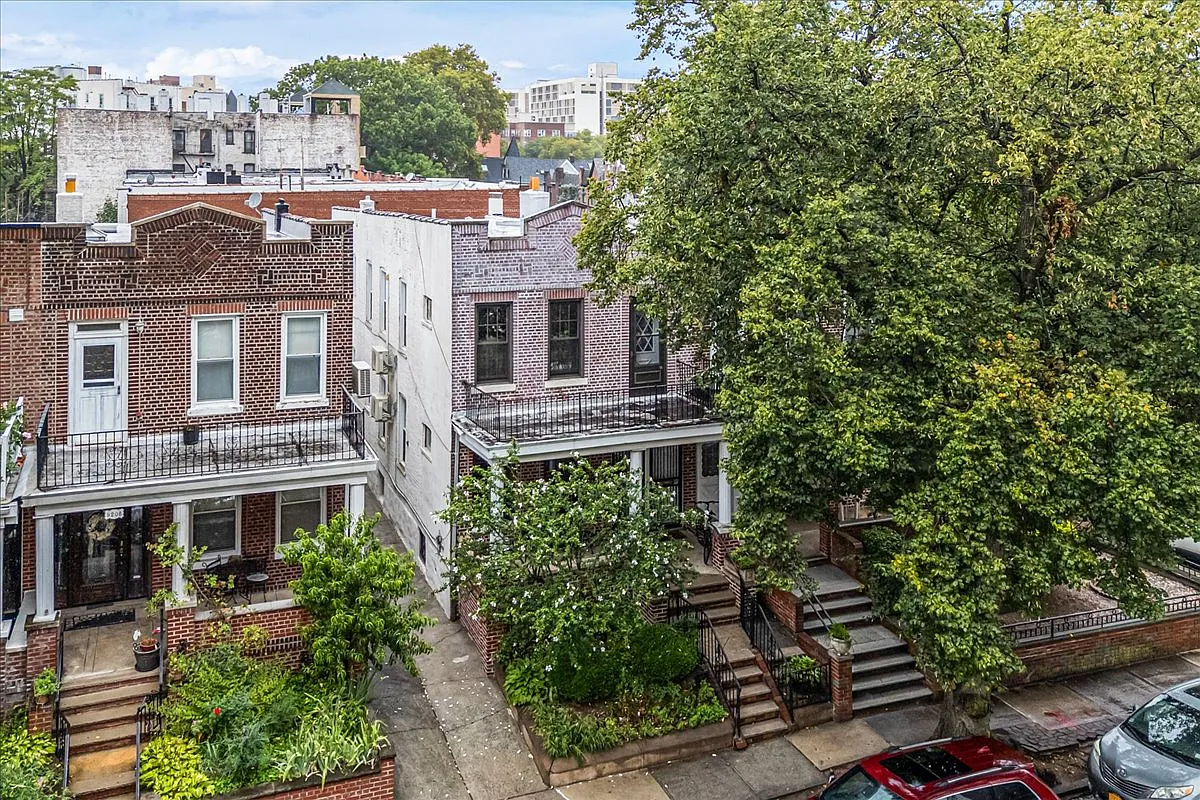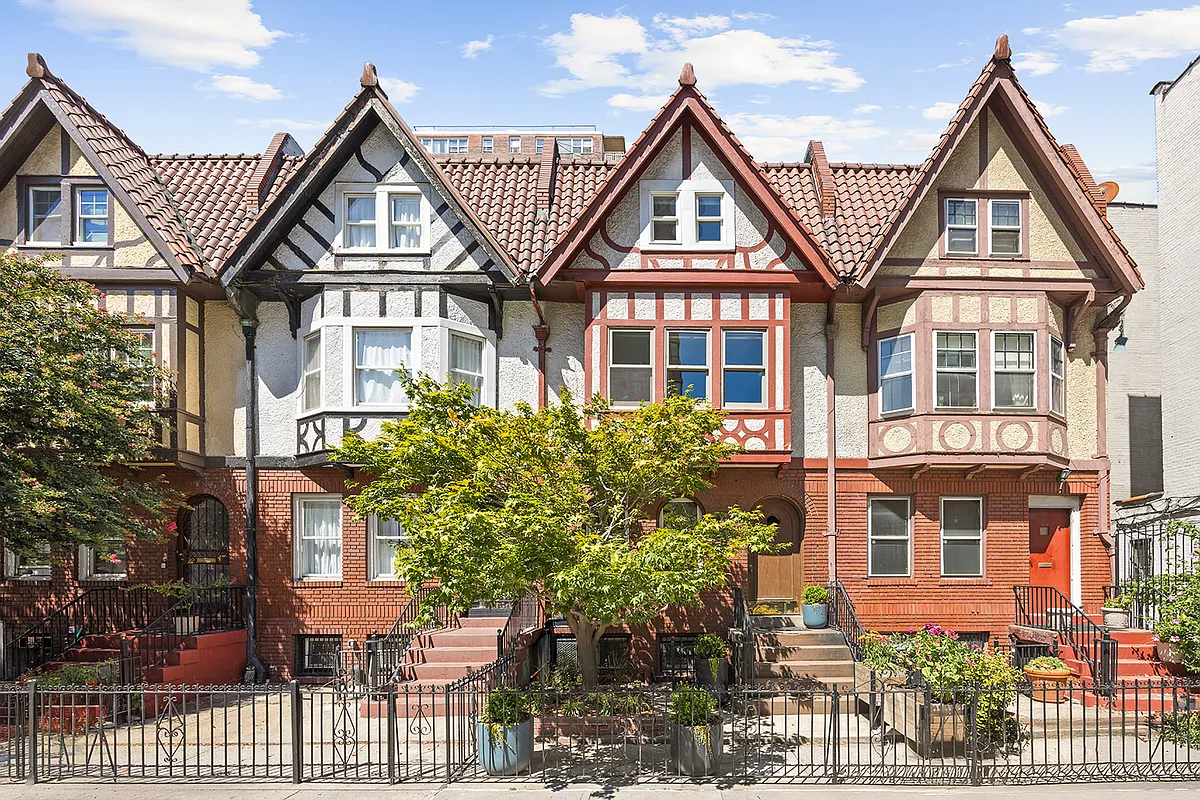Third Quarter Report: Foreclosures Down in Brooklyn
Our foreclosure rate here in Brooklyn dropped one whole percentage point this quarter, according to the Q3 reports from Property Shark. Staten Island and Queens are both hurting, with a 44% and 19% increase respectively; one in every 952 SI homes was in foreclosure. Manhattan’s in the best shape, apparently, with an 8% decrease. The…


Our foreclosure rate here in Brooklyn dropped one whole percentage point this quarter, according to the Q3 reports from Property Shark. Staten Island and Queens are both hurting, with a 44% and 19% increase respectively; one in every 952 SI homes was in foreclosure. Manhattan’s in the best shape, apparently, with an 8% decrease. The top zip code for lis pendens, however, was 11208, which encompasses East New York, New Lots, City Line and Starrett City.





Legion,
If Mopar calls to let you know the houses are going for 200K in FG, please let me know! Maybe Nokilissa will finally be able to settle on a house at that point.
uhh, did you miss the headline mopar?
Brooklyn foreclosures down.
I know you are pining away for the local assclown, but the truth is we are far from an, I Am Legend, scenario as he was prone to whine about.
As I stated, the truth usually lies somewhere between the hyperbole.
You are letting your liberal pessimism get the best of you. in fact one might argue that with 50 million or so angry and motivated liberals, there will be no “good economy” until their candidate is in office.
Call me when the brownstones in fort greene hit 200k.lol.
Oh for heaven’s sake. Prices in marginal Brooklyn neighborhoods for whole houses have already dropped 20 percent. (I know, I live in one.) Foreclosures and short sales are dramatically up (in these areas). Reasons: Health care problems, job loss, refinancing with balloon mortgages, and buying with balloon mortgages. That’s the supply side.
On the demand side, the pool of qualified buyers shrunk significantly in the spring and summer when you could no longer get a loan with less than 10 percent down and good credit. In the last week, it appears you can only get a loan with 20 percent down and credit over 750. Right now, good houses are being snapped up at fire sale prices by qualified buyers. Places in poor condition languish on the market. Those are the facts! Going forward, if there are significant job cuts, European economy gets worse, interest rates go up, lending stays tight — prices will keep dropping. Or maybe the Chinese will swoop in and buy their Classic 6 pied-a-terres. Before the U.S. defaults on all its credit, I mean. Where is The What, by the way? Shouldn’t he be on here crowing he was right?
The truth will lie somewhere in between the hyperbole.
-the bailout bill has been passed, for good or bad, that means that the banks will take the risky mortgages off the books.
-those mortgages will be refinanced, foreclosed and sold or simply paid.
-business will continue mainly because that’s what people do, we work and build and procreate and generally grow.
-sure there may be an economic downturn but talk of a new depression seems silly when we understand the difference between 1929 and 2008 in terms of underlying social structure, economic forces and technological advancements.
-housing in Brooklyn and New York in general will not tank because in tougher economic times the trend is towards the city where easy commuting, more jobs and more business opportunity are to be found. The problem in the 1970’s was decades of erosion and manufacturing base decay.
-buying opportunities will abound, after all, it’s not like there aren’t talented, hardworking and intelligent people out there with good credit or some savings to invest in a new home. Most people still want their own homes as far as I can tell.
Tipping Point – you’re making sense. I’m not a hysteric naysayer, and I appreciate that Miami is in worse shape than the rest of the country, but things in New York just aren’t looking that good. For those of us in finance the bonus outlook is really poor – assuming we can hold onto our jobs. People can’t stay put paying over $8,000 in mortgages if they have no job, no prospect of pay increases, or a drastic pay cut. Prices will fall relative to the pool of available buyers, their ability to get credit, and the sense of urgency current home owners have to sell. We shall see, but I would not read too much into a 1% decline in existing foreclosures – the bigger measure is the number of people who won’t be able to get into this market anytime soon.
tippingpoint: I understand what you mean about the fundamentals of the economy, but I think a distinction needs to be made between parts of the country in which a large % of the housing built was speculative and parts in which are dominated by owner-occupied, primary residences. Brownstone brooklyn falls squarely into the later category.
And yes, downward pressure on the top-end will affect the middle and bottom as well – but again, it’s a matter of making distinctions within the market. Places like 15 CPW and other Manhattan trophy condos have seen amazing price inflation, and they may indeed see a huge price deflation. But %-wise, your average 2 BR Brooklyn co-op in an established neighborhood hasn’t seen the same kind of insane price gains over the last 5 years. So my bet is this type of property will also see the least decline [based on relative scarcity, co-op oversight, and wide-ranging appeal to singles, couples, small families].
Finally, again, I agree that there are many overpriced brownstones on the market. It’s amazing to see places listed at 3x their 2005 value after only minor facelifts… but the real #’s to look at are sale prices, not asking prices. Speculators might lose-out big time, but my hunch is that the price drops in the prime neighborhoods will be blunted by a large % of people simply staying-put & weathering the storm [assuming it doesn’t go longer than 2-3 years].
Employers cut 159,000 jobs in September, more than twice as many as in August or July, the Labor Department reported. It was the biggest monthly decline since 2003, when the economy was still losing jobs in the wake of the 2001 recession.
keep denying the way you were back in June when you thought NY would hold up.
The 40-50% reduction relate to the fundamentals of the economy and the relative price of real estate to other goods (including rent) – You must also realize that the large increase of cheap money pushed up prices of a lot of things, but contrary to cheap money in the early 90s (look at the stock market indexes) most of this cheap money went into housing. The problem gets much worse when loans can’t be repaid because of the multiplier effect of money in the economy.
I agree that people didn’t but a $4mm Brownstone in Park Slope using a NINA loan, but prices are relative to each other: i.e. the bottom pushes the top higher and prices are relative. Without runaway inflation of other goods including income (as they relate to housing) we’re going to see a drastic decrease in price.
Not all prices will go down by 50%, some prices are only out of equilibrium by about 25% – but flipping through the realtors websites, there are plenty that are 100% over valued (i.e. 50% reduction) simply to be afforded by people’s incomes when there isn’t cheap money.
So, real estate is collapsing everywhere else in the planet, but brownstone Brooklyn will emerge unscathed?
This sort of “thinking” is what causes asset bubbles in the first place.